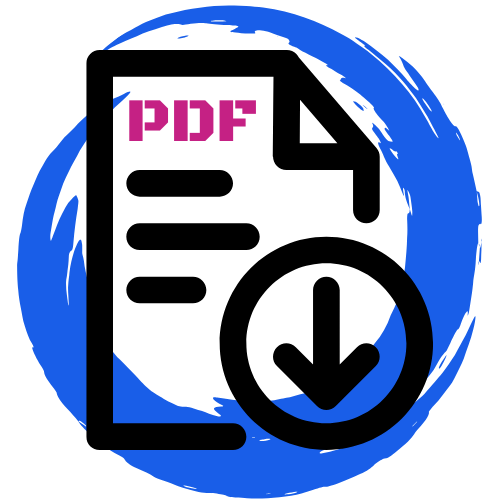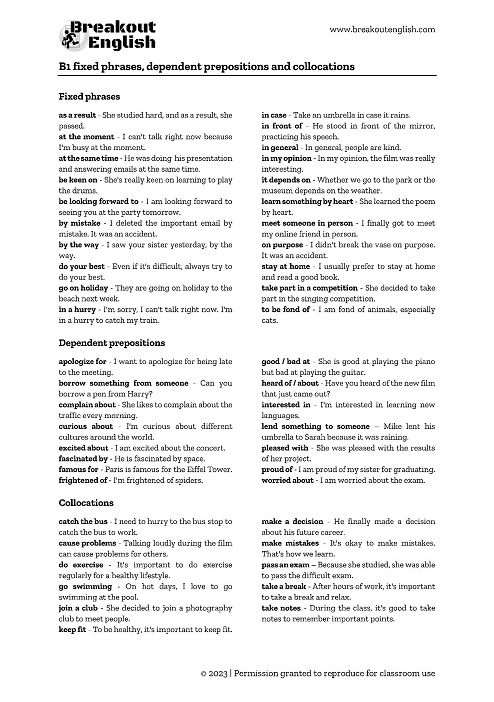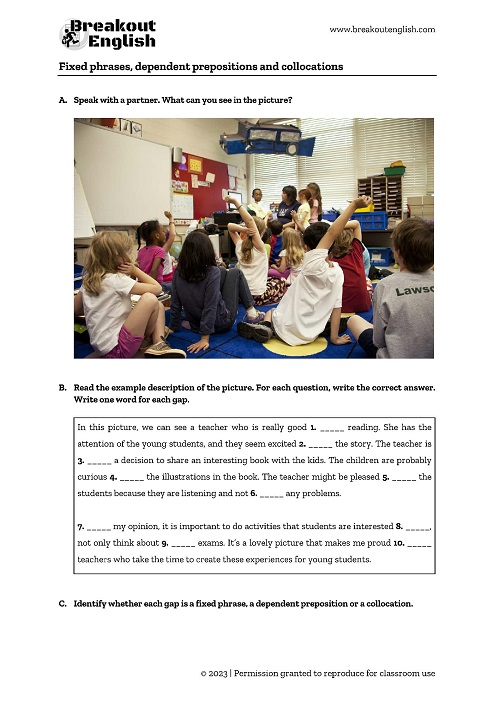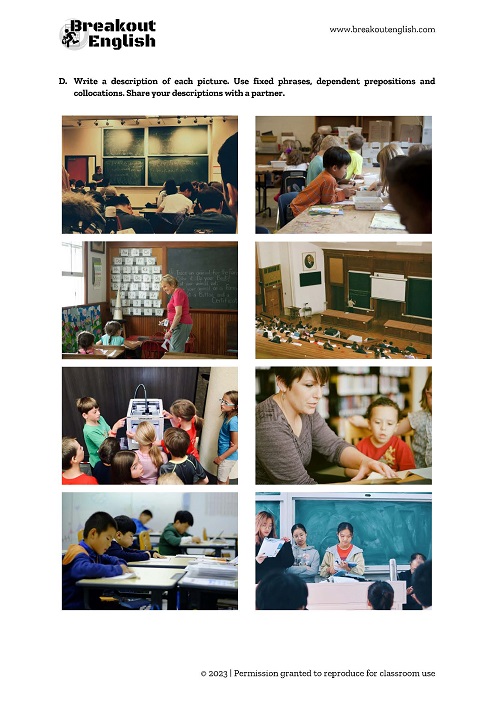Often the difference between a pass and a fail in B1 exams is the minor details such as choosing the right words in B1 fixed phrases, dependent prepositions and collocations. These can be challenging because you have to notice the individual words. You may understand the phrase perfectly when reading or listening, but when it comes to a challenging B1 Reading Part 5 or 6 exercise, the details can cause problems. This is especially true in Cambridge exams, and it won’t stop as you advance in levels. Cambridge specifically includes this type of vocabulary in their B1 exams because it prepares students for the Use of English paper that first appears at the subsequent B2 level.

Contents
What is a fixed phrase?
A fixed phrase refers to a group of words used together with a specific meaning. These expressions help enhance communication skills and make people sound more natural, especially when speaking.
Examples of fixed phrases:
- be keen on – She’s really keen on learning to play the drums.
- by the way – I saw your sister yesterday, by the way.
- in general – In general, people are kind.
- on purpose – I didn’t break the vase on purpose. It was an accident.
- to be fond of – I am fond of animals, especially cats.
Knowing fixed phrases is important for B1 level candidates as it not only shows their ability to navigate real-life scenarios, but also contributes to a more fluent and natural communication style. In the B1 Preliminary Cambridge exam, fixed phrases can come up in Reading Parts 5 and 6, where your knowledge of grammar and vocabulary is tested.
What is a dependent preposition?
A dependent preposition is a preposition that is fixed to a specific word without changing the meaning of the word. These shouldn’t be confused with phrasal verbs, where the meaning does change. Dependent prepositions can follow (and sometimes precede) adjectives, nouns or verbs.
Examples of dependent prepositions:
- apologise for – I want to apologise for being late to the meeting.
- curious about – I’m curious about different cultures around the world.
- good / bad at – She is good at playing the piano but bad at playing the guitar.
- interested in – I’m interested in learning new languages.
- proud of – I am proud of my sister for graduating.
Dependent prepositions are especially significant for the Cambridge Preliminary B1 exam. In Reading Part 5, you must choose the correct option of four to fill a gap. If a preposition follows the gap, it can tell you the correct answer. In Reading Part 6, you must fill a gap with one word, which could easily be a dependent preposition because there wouldn’t be any other option that would make sense in the sentence.
Part 5: The Parker brothers have always been _____ in classic cars, but it wasn’t until 2020 that they bought one.
A – excited B – fascinated C – interested D – curious
answer – C – interested – Only this adjective can be followed by in
Part 6: The Parker brothers have always been interested _____ classic cars, but it wasn’t until 2020 that they bought one.
answer – in – This preposition must follow interested
What is a collocation?
A collocation is a predictable combination of words which are frequently used in combination with each other. This frequency occurs more often than by chance. There are degrees of collocation. Strong collocations are found together very frequently, whereas weak collocations are less commonly combined.
Examples of collocations:
- cause problems – Talking loudly during the film can cause problems for others.
- do exercise – It’s important to do exercise regularly for a healthy lifestyle.
- keep fit – To be healthy, it’s important to keep fit.
- make a decision – He finally made a decision about his future career.
- take a break – After hours of work, it’s important to take a break and relax.
These types of verb-noun collocations are typical for B1 level, forming very frequently used verb phrases. Expect them to come up throughout the Reading tasks and also in Listening.
The materials
Because we love a good list at Breakout English, we’ve made a short list of what we consider to be essential fixed phrases, dependent prepositions and collocations for B1 learners. This list isn’t exhaustive and it could be a lot longer. However, it’s a good start and a manageable amount to learn and memorise.
This list is available as a QUIZLET SET for students to practise, play and test themselves with.
We’ve also designed a worksheet to introduce these phrases and practice them in a B1 Preliminary style speaking task, describing pictures.
EXAM PART: B1 Preliminary Reading Parts 5 & 6, Speaking Part 2 – Appropriate for B1 Preliminary for Schools
EXAM SKILLS: Knowledge of vocabulary items
TOPIC: School and education
TIME: 30-45 minutes
PREPARATION: One copy of the worksheet per student
Procedure
- TEST students ability and knowledge by completing a Cambridge Preliminary style Speaking Part 2 task.
- TEACH students about fixed phrases, dependent prepositions and collocations using the brief text.
- EXPAND students’ vocabulary using the Quizlet cards.
- TEST students again by practising several Speaking Part 2 tasks.
Download






